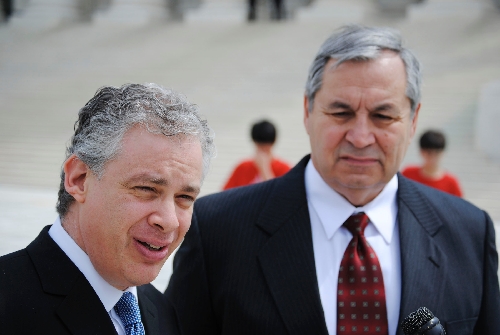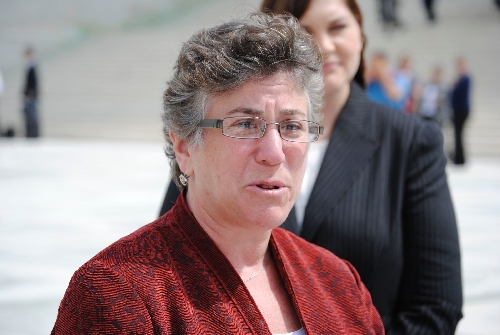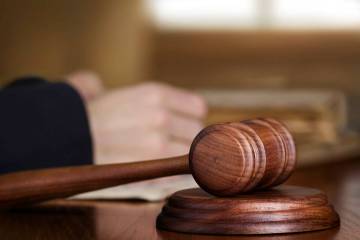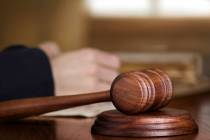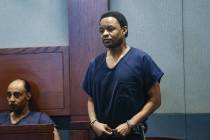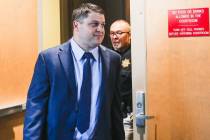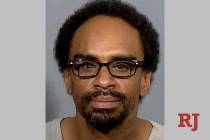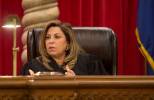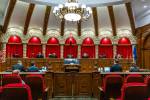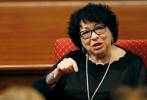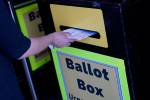Supreme Court dissects Nevada ethics law
WASHINGTON -- The U.S. Supreme Court on Wednesday engaged in a spirited dissection of a Nevada ethics law in a case that could have sweeping implications for good government statutes across the nation.
Justices, in Nevada Commission on Ethics v. Carrigan, for the first time considered whether a vote by an elected official is protected speech under the First Amendment.
If so, Justice Antonin Scalia said in a fast-moving hourlong session, the case was "enormously important."
"It opens the door to future litigation challenging ethical rules, which does not make me happy," he said.
The case revolves around a vote that Sparks City Councilman Michael Carrigan cast in 2006 in favor of a casino project that his friend and campaign manager, Carlos Vasquez, had been paid to advocate. The state ethics panel censured Carrigan for violating a state law that prohibited him from voting on issues where a family member, business associate or "substantially similar" relation has a private interest.
The Nevada Supreme Court later threw out the law, saying that Carrigan's vote was protected speech and as such the state law was unconstitutionally overbroad.
The Ethics Commission appealed to the U.S. Supreme Court, where on Wednesday every justice save for Justice Clarence Thomas questioned attorneys for Carrigan and for the state panel.
Scalia, for one, indicated he was disinclined to extend First Amendment protections to votes by elected officials.
When Justice Stephen Breyer suggested that the court "may have to write an opinion -- either it is speech or not."
Scalia chimed in "you may be willing to, but I'm not."
Several media organizations filed a brief in support of the Nevada law, including the Associated Press, Reporters Committee for Freedom of the Press, and Stephens Media LLC, which operates the Las Vegas Review-Journal.
They argued that ethics rules are important to ensure politicians don't vote based on personal interests.
Moreover, they argued that if the Nevada law is ruled unconstitutional it could have "fatal implications" for other laws that keep elected officials accountable, such as open meeting laws, revolving door laws and judicial ethics.
Chief Justice John Roberts and Justice Elena Kagan raised broad questions if the court accepted the argument that actions by elected officials were constitutionally protected.
Roberts wondered if such a shield would impact how Congress allocates floor time or committee membership. Kagan wondered if the president could be barred from firing a Cabinet member who delivers a speech he opposes.
Joshua Rosenkranz, an attorney for Carrigan, stressed during oral arguments that the censure by the state Ethics Commission was tantamount to an attack on political relationships that are a foundation of democracy.
"If this is accepted the candidate will have to think twice before ever hiring or enlisting a volunteer who is a political activist," he said.
John Elwood, an attorney for the Ethics Commission, countered that from its beginnings Congress established recusal rules that have not been challenged as unconstitutional, and that the Nevada law similarly was clear enough.
"What we have here is a relationship that was front page news, because this isn't just some plain vanilla campaign volunteer. This is somebody with whom he has a very intimate business relationship," Elwood said.
Justice Samuel Alito said he found the statute difficult to understand and worried that it presented public officials with an impossible task of discerning who fit the "catch all" of "substantially similar."
"A public officer not only has to think about second cousins; the person has to think about everybody who is like a second cousin to him or her. I have no idea how you go about that," Alito said.
Breyer discounted Rosenkranz's argument that campaign volunteers, in general, could be caught up in the law.
"What the commission says is Mr. Vasquez has been a close personal friend, confidant, and political adviser throughout the years. So that doesn't sound like any volunteer. It sounds like somebody sitting on a case where his best friend is likely to gain millions of dollars," Breyer said.
Justice Sonia Sotomayor also wondered why Carrigan bothered to seek an opinion from the city attorney if he did not suspect he "was on the edge of a law" in voting on the casino issue.
"This guy is a Boy Scout, Your Honor. He does everything to avoid any appearance of impropriety," Rosenkranz answered.
Justice Ruth Bader Ginsburg wondered if any "catch-all' would be pass constitutional muster for Carrigan. Rosenkranz said it would be hard to imagine one.
Caren Jenkins, executive director of the Nevada Commission on Ethics, and Carrigan spoke separately to reporters gathered outside the U.S. Supreme Court following the session.
Jenkins declined to predict an outcome. She said Elwood had done an extraordinary job in answering a broad range of questions from the justices. Carrigan said he never imagined his dispute would end up at the Supreme Court. He insisted that he had done nothing unethical and that the law should be tossed out.
"If I thought I had done something unethical, I would have resigned," he said. "Also, all the other elected officials are supposed to read this law and know what they are supposed to do. We're all part-time politicians."
The justices are expected to issue a ruling by the end of June.
Contact Stephens Washington Bureau reporter Peter Urban at purban@stephensmedia.com or 202-783-1760.



